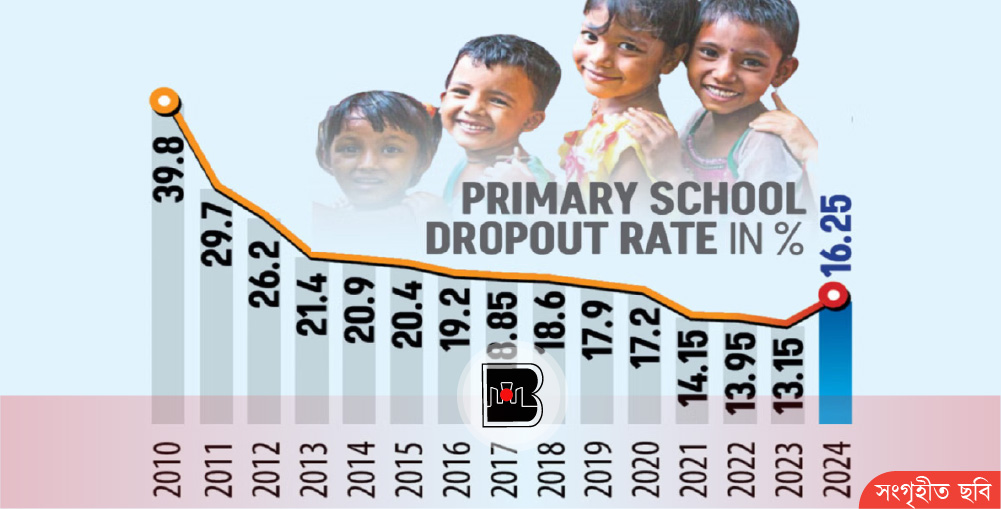
Bangladesh's primary school dropout rate saw a significant increase last year, reversing a 14-year trend of steady decline. A new government report, the Annual Primary School Statistics (APSS) 2024, reveals that the dropout rate jumped to 16.25% in 2024, up from 13.15% in 2023. This is a major setback for the country's primary education system.
The report, released by the Directorate of Primary Education (DPE), attributes this rise to several factors. Inflation-induced financial strain and the early entry of children into the labor market are key reasons, as families are forced to prioritize survival over education.
Gender and Grade-Wise Analysis
The data shows that a larger proportion of boys are dropping out compared to girls. The dropout rate for boys surged to 19.02% in 2024, a notable increase from 14.12% in 2023. The rate for girls also rose slightly, from 12.32% to 13.36%.
The report also found that dropout rates increase as students move into higher grades. While enrollment is high and attrition is low in Class-I, the rate steadily rises from Class-2, peaking at 7.6% in Class-4. The DPE report emphasizes that these are the areas that require immediate intervention.
Reversal of a Successful Trend
Bangladesh has made remarkable progress in reducing primary school dropouts since 2010, when nearly four out of every ten students failed to complete the primary education cycle. Government initiatives, such as providing free textbooks, expanding stipends, and introducing mid-day meals, had helped lower the dropout rate to 17.02% by 2020, and further to 13.15% in 2023.
Reasons Behind the Sudden Rise
According to the report, the recent surge in dropout rates is linked to:
Noted educationist Rasheda K Choudhury highlighted that while the government has increased stipends, the amount has not kept pace with rising inflation. She also pointed out the increased prices of essential school supplies like notebooks and pens, which add to the financial burden on families. She urged the government to increase stipends and invest more in both student retention and quality education.
In response, DPE Director General Abu Noor Md Shamsuzzaman stated that the government is taking action to address the issue. The school feeding program, which was suspended in 2022, will be revived next month in 165 poverty-stricken upazilas, covering 23,000 primary schools. Students will receive two food items five days a week, a move that is expected to boost attendance and reduce dropouts. However, he mentioned that there are currently no plans to increase the general stipend amount due to budget constraints, although scholarship amounts for 82,500 students may be raised.
আপনার বিজ্ঞাপন এখানে